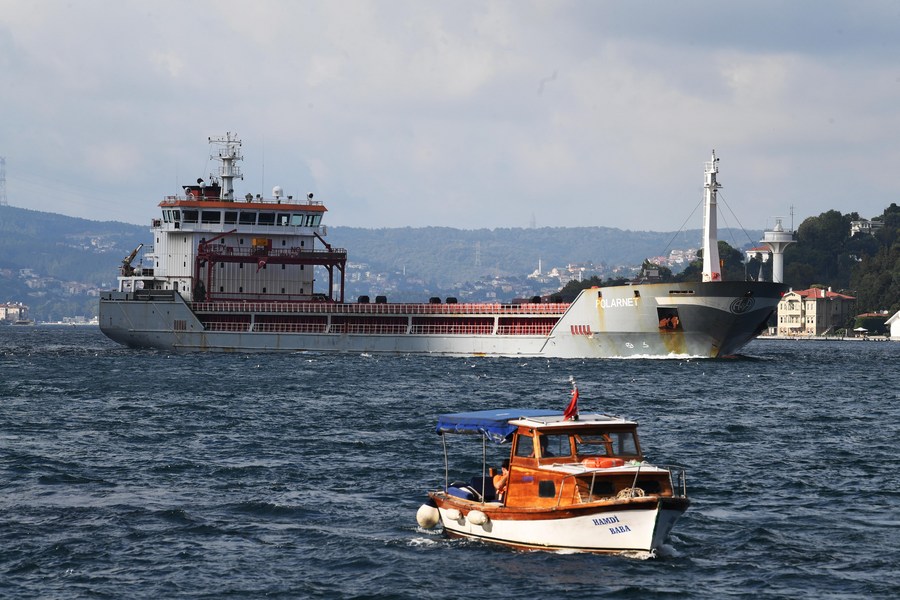ANKARA, April 7 (Xinhua) -- Türkiye agrees with Russia that the problems should be resolved regarding the obstacles to Russian fertilizer and grain exports so that the Black Sea grain deal could be extended, Turkish Foreign Minister Mevlut Cavusoglu said on Friday.

A vessel in the second caravan of ships transporting grain from Ukraine passes through the Bosphorus Strait in Istanbul, Türkiye, Aug. 7, 2022. (File photo: Xinhua)
Cavusoglu made the remarks at a joint press conference with his visiting Russian counterpart Sergei Lavrov in the capital Ankara.
"We agree that the barriers to Russian grain and exports should be removed. Issues need to be resolved for the grain deal to be extended," said the Turkish top diplomat, referring to the Black Sea Grain Initiative.
He said there is a Memorandum of Understanding between Russia and the United Nations Secretariat on the issue of transporting Russian fertilizer products and raw materials including ammonia to the global markets, and it is important to implement it.
The two ministers also discussed the existing ban of selected Russian banks from the SWIFT system -- a messaging network through which international payments are initiated, paralyzing Russian international transactions, and insurance problem that has hindered Russian vessels from docking in certain ports.
The Russian foreign minister said that Moscow had decided to extend the grain deal for 60 days but will question another extension if its requests are not met.
"If there is no further progress in removing barriers to the export of Russian fertilizers and grain, we will think about whether this deal is necessary," Lavrov noted.
If necessary, Russia will work on grain exports through Türkiye or Qatar outside the Black Sea Grain Initiative, he stressed.
On July 22, 2022, Russia and Ukraine separately signed a document in Istanbul with Türkiye and the United Nations on grain and fertilizer exports from Ukraine and Russia to ensure supplies to global markets amid the Russia-Ukraine armed conflict.
The deal, initially in effect for 120 days, was extended in mid-November 2022 for another 120 days to March 18. After that, the deal was extended again, with Russia agreeing to only extend it for 60 days.


